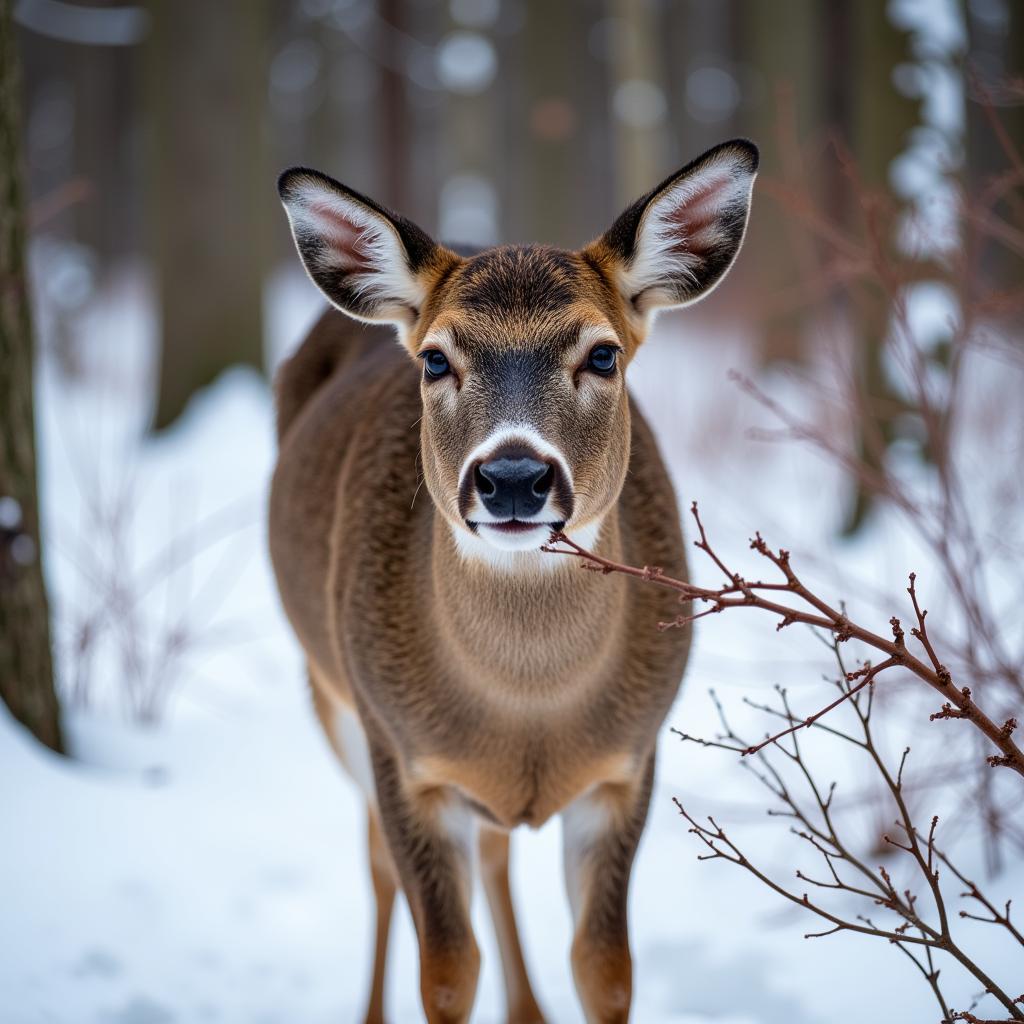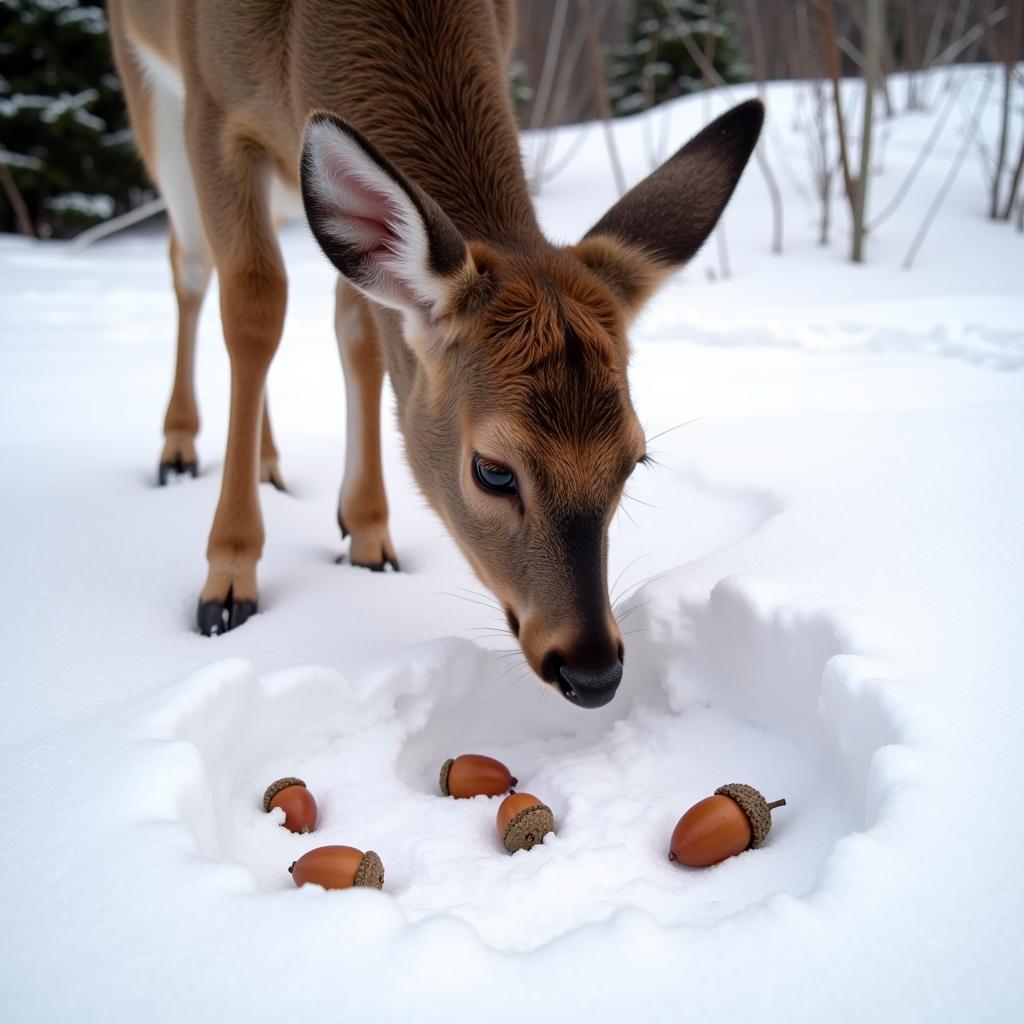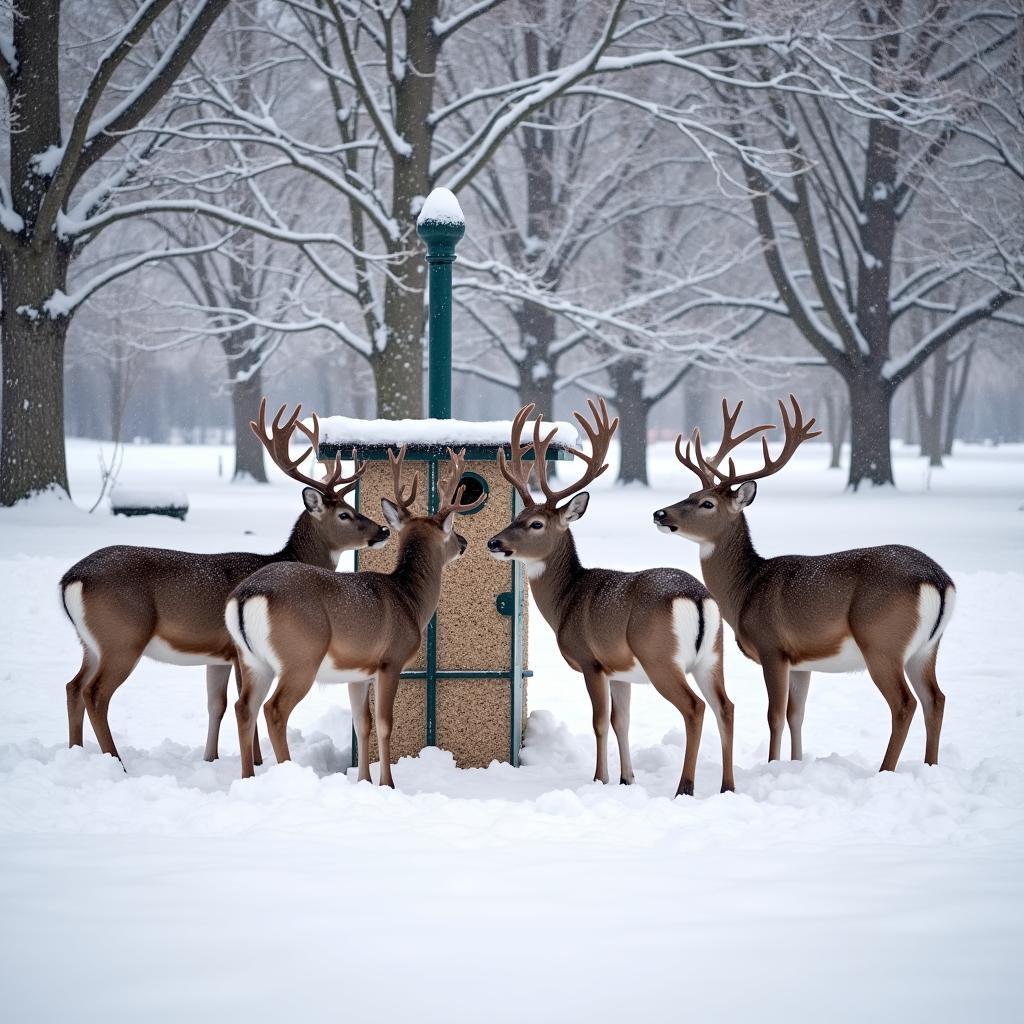Winter can be a tough time for deer, especially when it comes to finding enough food. As temperatures plummet and snow blankets the ground, their natural food sources become scarce. That’s why it’s important to understand the best Food For Deer In Winter to help them survive and thrive during the colder months.
 Deer Feeding in Winter
Deer Feeding in Winter
Why Winter Food is Crucial for Deer
Deer are ruminants, which means they have a four-chambered stomach that allows them to digest tough plant matter. However, their digestive process requires a lot of energy, especially during the winter when they need to stay warm. When food is scarce, deer lose body fat and become weaker, making them more susceptible to illness and predation. Providing supplemental food can help bridge the gap when natural food sources are limited.
Best Natural Food Sources for Deer in Winter
While natural food can be harder to come by in winter, there are still some options that can help sustain deer:
- Browse: Browse refers to the twigs, buds, and leaves of woody plants. Some examples of good browse for deer in winter include cedar, maple, and honeysuckle. You might also consider planting browse species like food plot winter rye in your area to provide additional sustenance.
- Hard Mast: Hard mast refers to nuts like acorns and beechnuts. These provide a high-energy food source that deer can rely on throughout the winter.
- Fruits and Berries: While most fruits and berries are gone by winter, some species like crabapples and persimmons can persist and provide a valuable food source.
 Deer Foraging for Acorns
Deer Foraging for Acorns
Supplemental Feeding: Giving Deer a Helping Hand
Supplemental feeding can be a great way to help deer through the winter, but it’s important to do it responsibly:
- Choose the Right Food: Deer need high-energy foods in winter. Avoid feeding them “treats” like bread or corn, which can actually be harmful to their digestion. Instead, opt for commercially available deer feed that contains a balanced mix of nutrients.
- Provide a Consistent Food Source: Deer are creatures of habit. Once they find a reliable food source, they will return to it regularly. Be prepared to replenish feeders throughout the winter.
- Consider Food Plots: For a more natural approach, consider planting food plots for deer in spring with species like clover, alfalfa, and chicory. These provide nutritious forage that deer can graze on throughout the year.
Common Questions about Feeding Deer in Winter
Here are answers to some frequently asked questions about providing supplemental food for deer in the winter months:
What do deer eat when there is no snow?
Deer have a varied diet that changes with the seasons. In areas without snow, they can still find browse, green plants, and some fruits and berries.
How can I attract deer to my yard in winter?
Providing a food source is one of the best ways to attract deer. Make sure your feeders are placed in an open area where deer feel safe.
Is it bad to feed deer in my yard?
Feeding deer can be beneficial, but it’s important to do it responsibly. Avoid overfeeding, which can lead to habitat degradation and disease transmission.
What vegetables are good for deer in winter?
While vegetables are not a natural part of a deer’s diet, they may eat them if available. Good options include turnips, beets, and apples.
Tips for Successful Winter Deer Feeding
- Start Early: Begin feeding deer in late fall before their natural food sources become scarce. This will help them get used to your feeders.
- Spread Out Feeders: Place feeders in different locations to reduce competition and minimize the risk of disease transmission.
- Provide Water: Deer need access to water, especially in winter when many water sources are frozen. Consider using a heated waterer.
- Check Regulations: Make sure you are following all local regulations regarding deer feeding.
 Deer at a Winter Feeding Station
Deer at a Winter Feeding Station
Helping Deer Thrive Through Winter
Understanding the best food for deer in winter is essential for their well-being. By providing supplemental food sources and supporting their natural foraging habits, we can help these magnificent animals survive and thrive during the challenging winter months. For more information on specific food plot options, check out our articles on deer food plot radishes and no till food plot mix. By working together, we can ensure that deer populations remain healthy and vibrant for generations to come.
Need help with your deer food plot? Contact us at Phone Number: 02437655121, Email: minacones@gmail.com or visit us at 3PGH+8R9, ĐT70A, thôn Trung, Bắc Từ Liêm, Hà Nội, Việt Nam. We have a 24/7 customer support team ready to assist you!